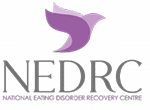National Eating Disorders Recovery Centre
First in Eating Disorders
The Binge Eating Disorder Programme
The Binge Eating Disorder Programme is a 12 week inpatient programme offered as part of our specialist Eating Disorder service. This programme has been developed to increase participant’s knowledge and understanding of the factors involved in the development and maintenance of binge eating and associated behaviours.
At the completion of the programme we will individually discuss with clients potential options for further support if needed. This may involve NEDRC’s Day Programme or out-patient services. The programmes therapeutic framework includes psychoeducation and skills acquisition from therapies such as CBT, Dietetics, Interpersonal Therapy and Effectiveness, Emotional Regulation, Distress Tolerance and Mindfulness in combination with self-directed activities.
This programme is most suitable for those who have been identified as having binge eating behaviours associated with an Eating Disorder diagnosis or difficulties with over-eating or night eating. The content of this programme is relevant to a broad range of people experiencing moderate to high severity of binge eating and associated behaviours including comfort eating, over eating.
Throughout the program participants are offered
• Nutrition education with a Dietitian in groups and individual dietetic planning (the goal will not be restriction or weight loss)
• Psychological group treatment and weekly 1:1 time with a Psychologist/ Therapist
• Mindfulness and Emotional Regulation strategies
• Art Psychotherapy
• Exercise Physiology
• Family Therapy
• Support pre, during & post meals
• 1:1 support with nursing staff and routine reviews with Consultant Psychiatrists
• Opportunity to develop a relapse prevention plan.
Patients with BED often experience so much distress which is compounded by judgments made about them.
At NEDRC, we approach all we do with compassion, empathy and a “no blame, no shame” approach.
The cost of treatment is covered by private health insurance (VHI Healthcare, Irish Life Health, Garda Medical Aid). The Health Service Executive (HSE) funds clients on a case by case, please contact for advise on applying for funding.
Help for Binge Eating Disorder and Bulimia Nervosa at NEDRC:
- Identify issues related to food, weight, and body image
- Help clients to understand why they get stuck in the diet-binge cycle and how to finally break it
- Engage, support, and help clients to repair their dysfunctional relationship with food and their bodies—no talk of “willpower”
- Help clients respond to well-meaning—yet harmful—weight loss “compliments”
- Discover hidden biases and in-built cultural stereotypes about weight that could negatively impact clients’ treatment
- Share simple mindfulness practices that can help reduce emotional eating
- Determine if individual or group therapy would best serve the client
- Help clients to develop a healthy framework that ends out-of-control eating without being bound to fad diets and self-punishment
At NEDRC you’ll also receive tools such as:
- Hunger Fullness Scale: Helps to identify the physical cues of hunger and satiation
- Hunger Matching List: Identifies the kinds of tastes and textures you’re craving so you can choose the foods that will satisfy your needs in that moment
- IE Protocol: This aids patients in eating intuitively so they can nourish their body and soul
- Writing prompts to help clients to truly understand their relationship to food, dieting, and body image
- Self-assessments to help you uncover and transform any subconscious/ unrealised biases you may have.
- A framework that takes the focus off weight loss and shifts it to developing a healthy relationship with food. When this happens, weight loss is often a side effect, but it’s not the goal.
- Therapeutic movement / mindful movements that are not seen as a chore or punishment and not something to dread but to enjoy.

“They may forget your name, but they will never forget how you made them feel”
Families are an important part of the recovery process and we encourage their participation but only with your consent. We also understand that not everyone has a relationship with their family and would not force this connection.
About Us
The National Eating Disorders Recovery Centre (NEDRC) supports a realistic view to health and weight. We incorporate WHO, NICE, MEED and the HSE Model of Care for Eating Disorders guidelines along with elements of Health at Every Size (HAES) principles, Intuitive Eating and Therapeutic Movement. We approach each individual with a holistic view, using the Medical (where needed), Therapeutic, Psychosocial and Recovery models.

Start your recovery journey today
Give us a call to schedule an appointment.
Phone: 01 564 4450 / 087 7755996
















